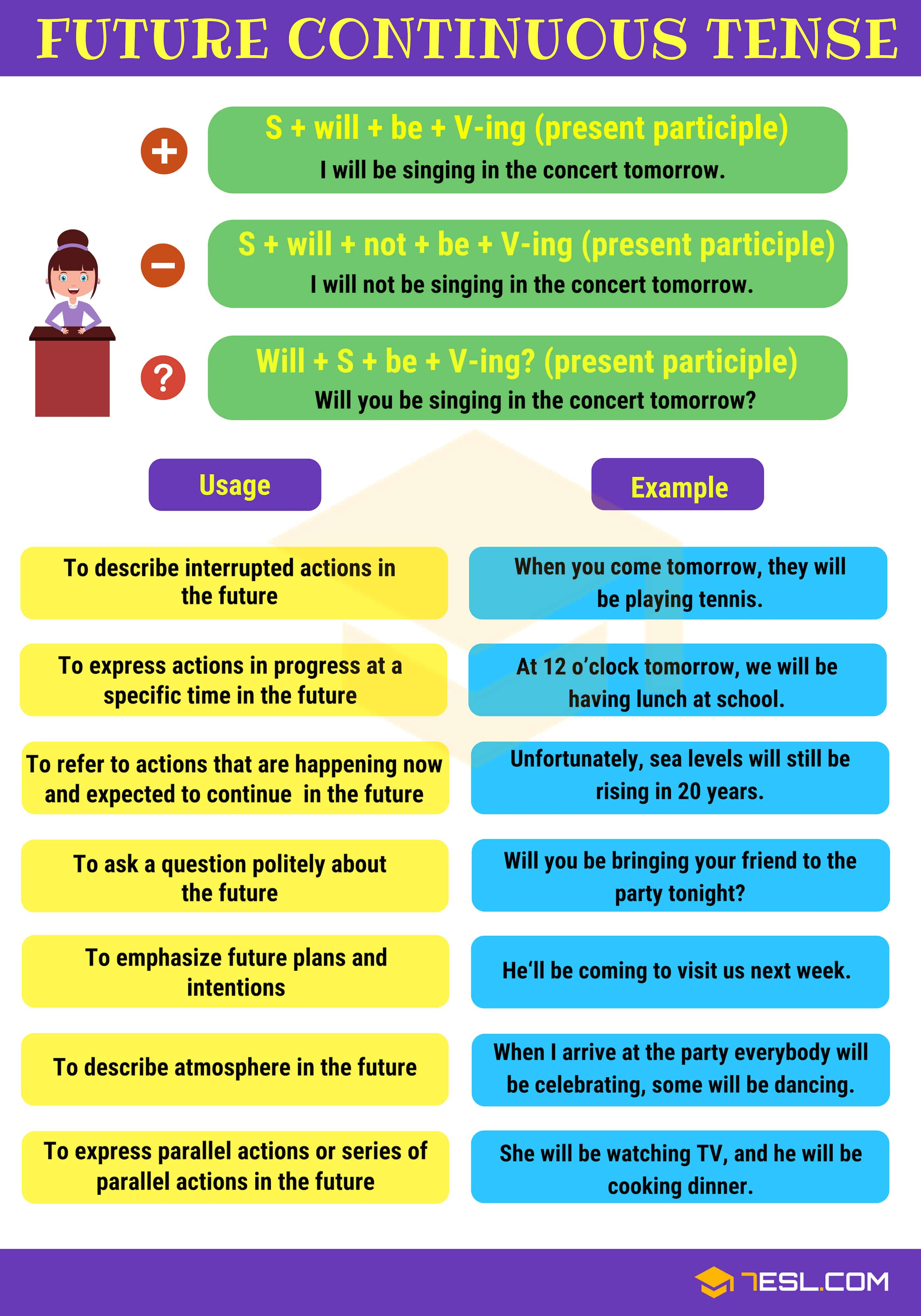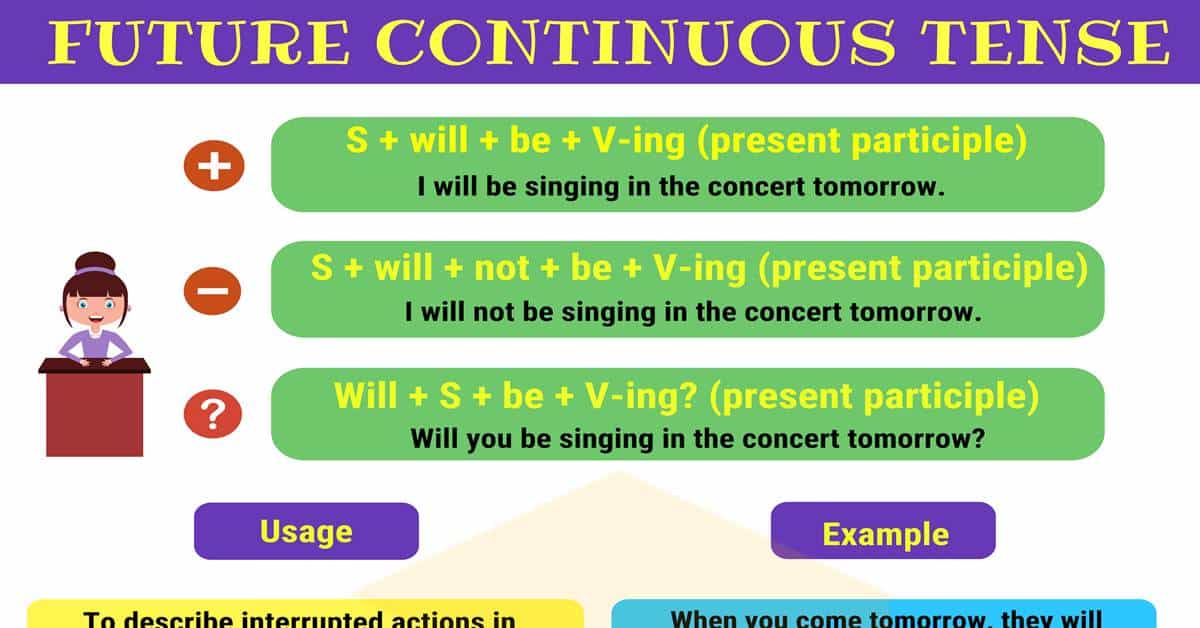Future Continuous Tense! In this section, we are going to show you how to correctly use the future continuous tense and the rules which must be followed in order to make sure that the sentences you are forming are grammatically correct.
Future Continuous Tense
To use the future continuous tense you will need to use the phrase ‘will be’ along with the present participle of the verb (the -ing version.) Using this tense will show that an action is going to take place in future and will continue for a certain period of time rather than in one moment like the simple future tense.
The Future Continuous tense is a verb tense that indicates that something will occur in the future and continue for an expected length of time.
It is formed using the construction will + be + V-ing (present participle).
Positive Sentence:
S + will + be + V-ing (present participle)
Example:
I will be singing in the concert tomorrow.
Negative Sentence:
S + will + not + be + V-ing (present participle)
Example:
I will not be singing in the concert tomorrow.
Question Form:
Will + S + be + V-ing? (present participle)
Example:
Will you be singing in the concert tomorrow?
How to Use the Future Continuous Tense
Learn how and when to use the Future Continuous Tense (or the Future Progressive) in English with grammar rules, examples, video and ESL worksheets.
The Future Progressive Tense is used:
- To describe interrupted actions in the future
Example:
When you come tomorrow, they will be playing tennis.
- To express actions in progress at a specific time in the future
Example:
At 12 o’clock tomorrow, we will be having lunch at school.
- To refer to actions that are happening now and expected to continue some time in the future
Note: combined with “still”
Example:
Unfortunately, sea levels will still be rising in 20 years.
- To ask a question politely about the future
Example:
Will you be bringing your friend to the party tonight?
- To emphasize future plans and intentions
Example:
He‘ll be coming to visit us next week.
- To describe atmosphere in the future
Example:
When I arrive at the party everybody will be celebrating, some will be dancing, other will be talking.
- To express parallel actions or series of parallel actions in the future
Example:
She will be watching TV, and he will be cooking dinner.
Time Expressions with The Future Progressive
- In the future
- Next week
- Next time
- Next year
- At this moment next year
- At this time tomorrow
- At 5 p.m tomorrow…
The Future Continuous Tense Chart | Picture










0 Comments